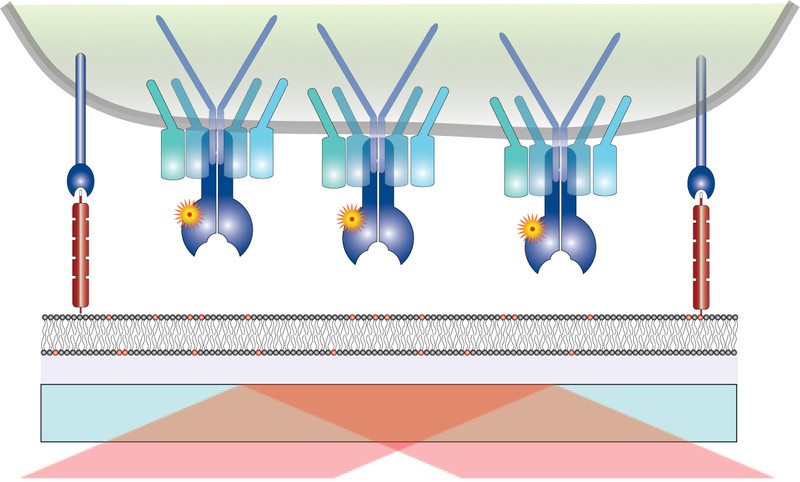Study Finds T-Cell Receptors Operate Solo, Alters Immunology Research
T cell antigen recognition requires T cell antigen receptors (TCRs) engaging MHC-embedded antigenic peptides (pMHCs) within the contact region of a T cell with its conjugated antigen-presenting cell.
Despite micromolar affinities, T cells respond to even a single antigenic pMHC, and higher-order TCRs have been postulated to maintain high antigen sensitivity and trigger signaling.
Now, researchers at the TU Wien and the Vienna School of Medicine have discovered that T cell receptors act alone, stark in contrast of the belief that T cell receptors must interact with one another for effective immune-signaling.
Prof. Johannes Huppa, Immunologist from the Medical University Vienna, and Mario Brameshuber, biophysicist from the TU Wien, have already joined forces several years ago- a union that now paved way for this study.
“Even though the mechanisms underlying T cell recognition are integral to the inner workings of the immune system, our understanding is still limited”, Johannes Huppa says.
“A unique aspect of our joint venture is the use of specialized microscopy approaches which allow for quasi-biochemical studies on living T cells”, says Mario Brameshuber.

“As a biochemist, this has always been a big dream of mine, simply because this combined experimental approach allows us to study short-lived molecular processes within their native cellular context, and not in the test tube, removed from the all defining context of life”, says Huppa.
“The outer membrane of the T cell is not like a solid skin. Molecules embedded in the membrane are relentlessly on the move. This is also true for the receptors which bind to antigens – they constantly change their location”, says Brameshuber.
And so, the mechanism underlying the remarkable sensitivity of T cells towards antigens was regarded to depend on T cell receptors forming pairs or even larger groups to collectively signal once a T cell receptor binds to a single antigen.
However, as was now shown by the Viennese researchers, this assumption is just plain wrong. “Obviously the T cell receptor is a fine-tuned molecular machine, which acts as an individual entity and translates antigen-binding events into intracellular signaling with an impressive degree of processivity”, says Johannes Huppa.






























